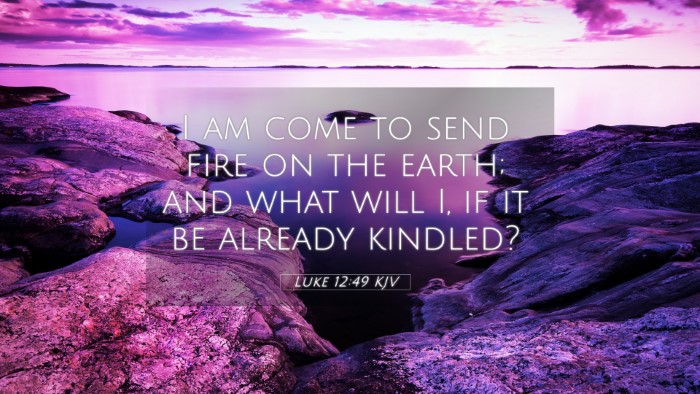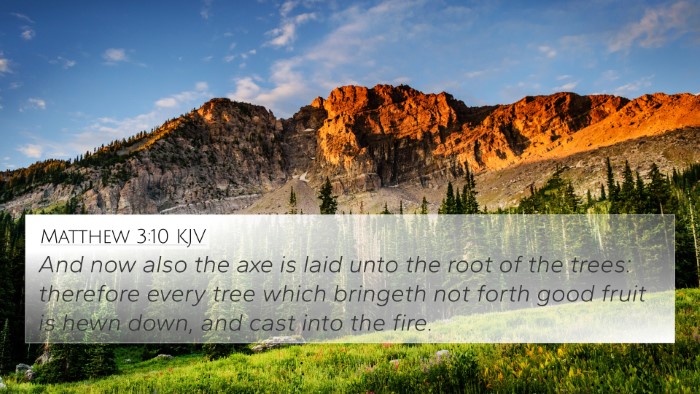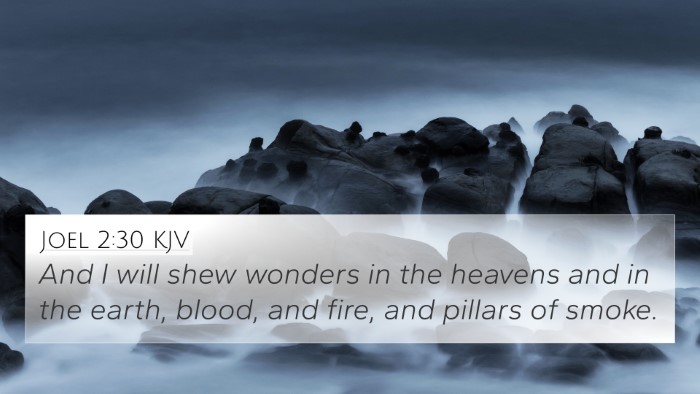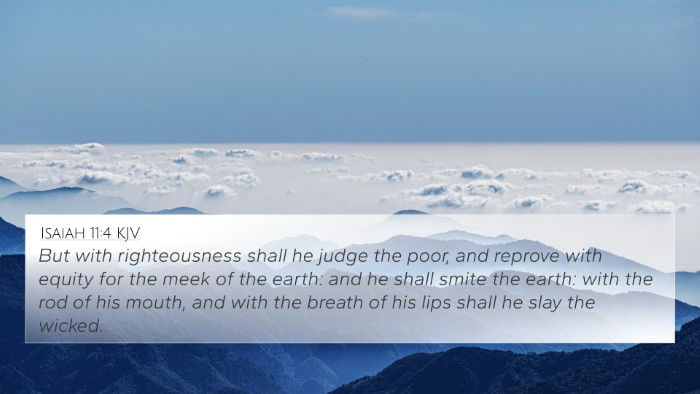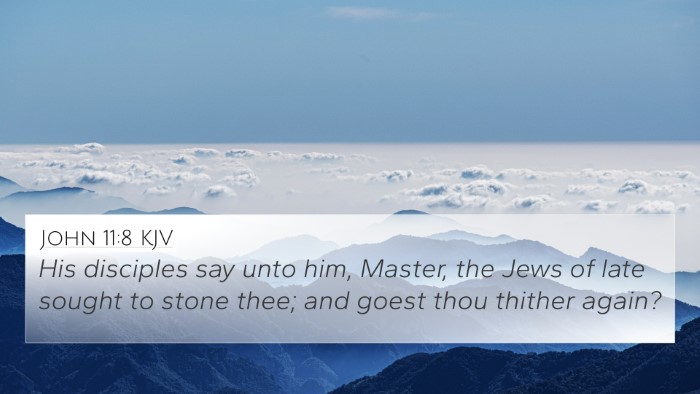Understanding Luke 12:49
In the Gospel of Luke, chapter 12, verse 49, Jesus states, "I came to send fire on the earth, and how I wish it were already kindled!" This verse encapsulates a profound and sometimes challenging message about the mission of Christ and the implications of His ministry.
Verse Summary
This verse signals the beginning of Jesus' ministry's transformative and often divisive nature. The imagery of fire symbolizes both judgment and purification. Jesus expresses a longing for the fire to be kindled, suggesting both urgency and the inevitability of what His coming will bring.
Commentary Insights
Matthew Henry's Commentary
According to Matthew Henry, the 'fire' mentioned is representative of the spiritual zeal and transformation that Jesus desires to see spread across the earth. It serves as a dual-purpose: bringing salvation to believers and judgment to those who oppose the gospel. This verse underscores the cost of discipleship, emphasizing that the message of Christ will cause division and strife.
Albert Barnes' Notes
Albert Barnes interprets this verse as a declaration of Christ's mission. The 'fire' is seen as the purifying work that will occur through the Holy Spirit, igniting the hearts of those who follow Him. He notes that Jesus' reference to His desire for this fire to be kindled indicates the urgency of His mission and the transformative power of His presence on earth.
Adam Clarke's Commentary
Adam Clarke emphasizes the notion of baptism by fire, connecting it to the trials and tribulations that believers will endure. He also notes the historical context surrounding Jesus' statements — foretelling the division between those who accept His message and those who reject it. Clarke reflects on the necessity of this 'fire' for the spiritual awakening of Israel and the establishment of the new covenant.
Cross-References
- Matthew 3:11 - "He will baptize you with the Holy Spirit and fire." This verse highlights the transformative power of the Holy Spirit.
- Hebrews 12:29 - "For our God is a consuming fire." This illustrates God's purifying nature.
- Luke 3:16 - Relates to the baptism of Christ, emphasizing the fire of purification.
- Malachi 3:2 - "But who can endure the day of His coming?" speaks to the refining judgment of God.
- Jeremiah 20:9 - "His word is in my heart like a fire," reflects how God's message ignites passion.
- Revelation 3:15-16 - Shows the consequences of spiritual lukewarmness, connecting to Jesus' desire for fervent faith.
- Luke 12:51 - "Do you suppose that I came to give peace on earth? I tell you, not at all, but rather division," directly ties into the divisive nature of Jesus' message.
Thematic Connections
This verse creates thematic links across the Scriptures, illustrating the concepts of:
- Judgment and Purification - The recurring biblical theme of fire as a tool of divine judgment and purification.
- Discipleship - The cost and commitment involved in following Jesus, often accompanied by trials.
- The Kingdom of God - The coming of God's kingdom marked by transformative power and upheaval in social norms.
Practical Application
For modern believers, understanding Luke 12:49 requires contemplating the implications of accepting Christ's message. Just as fire refines metal, the work of the Holy Spirit seeks to purify and embolden followers to live out their faith courageously, even in the face of opposition.
Conclusion
In conclusion, Luke 12:49 is a potent reminder of the radical change that comes with Christ's presence. Engaging with this verse through cross-referencing other scriptures deepens understanding and fosters a richer grasp of the overarching biblical narrative. As believers explore these connections, they uncover the transformative power of God's Word.
Further Study Suggestions
To gain a more profound understanding of the themes present in Luke 12:49, consider the following:
- Utilize a Bible concordance to find related verses and enhance your cross-referencing studies.
- Explore comprehensive Bible cross-reference materials to uncover deeper connections throughout the Scriptures.
- Engage in cross-reference Bible study methods to analyze how different verses relate and support each other.
- Identify tools for Bible cross-referencing that facilitate thematic explorations across both the Old and New Testaments.

